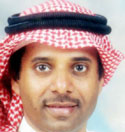
By Dr. Khaled M. Batarfi
30 June 2015
THIS time many years ago, while I was a student in the University of Oregon, US, Ramadan had a unique flavour. Our Muslim community was diverse.
Arabs, especially from the Arabian Gulf region were dominant. Pakistanis, Indians, Indonesians and Africans came next in population size.
Many new American Muslims joined our community. We may not see all of them in daily prayers, but most attended Friday prayer, and almost all came to Iftar and Eid prayers.
In Ramadan, the mode wholly changed. Maybe not much of a change in schools and public space, but it was different in our Islamic Centre with its Ramadan activities.
Families helped in lending colour to the atmosphere. Women made special dishes for Iftar, and they and our children joined the festival.
Around Iftar tables and during evening prayers, Muslims from all backgrounds, following different sects, young and old, religious and liberal, born Muslims and new Muslims sat side by side, prayed shoulder to shoulder, read the one and only sacred book — the Quran — and listened to same sermons.
Women did the same. Our better halves were even more organized, enthusiastic and energized. They ran Arabic, Qur’anic, Hadith and even cooking classes.
And when Eid came, more activities took place in and outside the centre. Kids were given a taste of the happy occasion in mosques, game contests and outdoor playgrounds, with wrapped gifts to all of them.
In Abubaker Asseddiq Islamic Centre of Eugene, Oregon, we were one big, happy family. My Shiite, Sufi and Salafi friends were as welcome as those who only came to mosque for Eid prayers.
Their lifestyle, personal convictions and private affairs were not of others' concern. They could come to the Centre and share our social activities with no question asked about their sexual orientation, line of work or sectarian, political, ideological affiliation.
Intellectual issues and events would be discussed, but often in an academic mode of respect, tolerance and acceptance.
Sermons were carefully worded not to upset anyone. I miss that atmosphere, today, in the lands of Islam. I see mosques assigned to each sect exclusively.
I watch satellite channels promoting sectarian disagreements. I hear highly respected scholars, who have a large following, spreading hate speech.
I find top Arab and Muslim politicians, parliamentarians, and leaders advocating divide and rule policies. And I follow with horror the misuse of social media in interfaith arguments among Muslims.
I was afraid of what that may lead to. In college, I studied the Rwandan problem, when, in 1994, and within few months (April to July), the majority of Hutus killed half a million to a million of their fellow citizens — Tutsis (and moderate Hutus), for no reason other than the differences in heritage and historical allegations.
The international community took too long to recognize what was happening as a genocide, and end it.
The advocates of hate and revenge had been turning the peaceful coexistence among the population into a mad ethnic-cleansing war that benefited none but inhuman leaders thirsty for power at any cost.
What I feared most came true in Iraq first, after the US invasion, in 2003, then in Syria, since 2011, and now in Yemen.
Lately, my beloved country, an oasis of peace and security, and now in peaceful Kuwait, sectarian attacks is becoming more destructive and bloody.
It breaks my heart and frustrates my intelligence to witness the results of trends long in process and progress.
How come our cool heads in every leadership department never saw this coming? Why no one in control rooms seems to expect what should be expected? One country after the other fell in the same trap and went through the same Hell gates, without learning from current experiences in the very close neighbourhoods! If history is too far to learn from, are current affairs hard to grasp, as well?
I'm shocked, confused and disappointed that the law against hate speech and discrimination we have been calling for ages was voted down by a majority of the Shoura Council, after all what has happened and resulted from such criminality.
I could accept the reasons if modifications were suggested, but to totally shoot the proposed law down was inexcusable.
It hints to alarming personal and common convictions and motivations. The Islamic Summit in Makkah, 2012, called for laws forbidding hate speech and approved the establishment of a centre in Riyadh for intersect dialogue.
In line with this vision, we urgently need actions for those strategies to work. Our world is on fire, our enemies are in action, and we all must rise up to the challenge before it's too late.
Dr. Khaled M. Batarfi is a Saudi writer based in Jeddah.
Source: http://www.saudigazette.com.sa/index.cfm?method=home.regcon&contentid=20150630248827




 Moderate Islamist here
Moderate Islamist here


0 comments:
Post a Comment